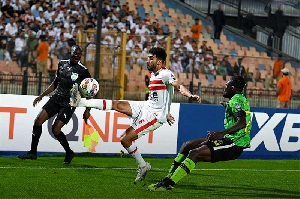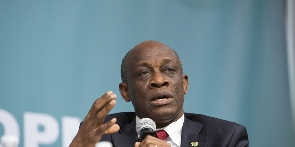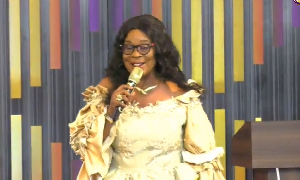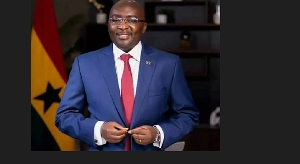- Home - News
- TWI News | TV
- Polls
- Year In Review
- News Archive
- Crime & Punishment
- Politics
- Regional
- Editorial
- Health
- Ghanaians Abroad
- Tabloid
- Africa
- Religion
- Election 2020
- Coronavirus
- News Videos | TV
- Photo Archives
- News Headlines
- Press Release
Politics of Thursday, 27 August 2020
Source: GNA
CDD-Ghana urges media practitioners to interrogate manifestoes of political parties
Professor Henry Kwasi Prempeh, Executive Director, Ghana Centre for Democratic Development (CDD-Ghana), has urged media practitioners to interrogate political parties’ manifestoes for the forthcoming 2020 general elections.
He noted that manifestoes were important tools to ensure electorates were well informed, and the media having networks with the political class and a connection to the citizenry, had an advantage to help mobilize opinions around issues.
He said the CDD-Ghana had laid out four manifesto evaluative criteria including; ‘does it pass the test of responsiveness; is it implementable; its capacity and impact.
“Gradually, if we are able to make manifestoes responsive, our ambition and hope is that, we begin to at least drive our politics in a developmental direction” Prof Prempeh stated in his remarks during a media engagement in Accra.
The forum dubbed “The Manifesto for Development Project Evening Encounter with the Media”, was aimed at discussing CDD-Ghana’s Manifesto for Development Report (M4D Project).
The Report, which seeks to inform and influence national agenda-setting and policy for inclusive development, was put together by gathering and synthesizing data and evidence from diverse sources, actors, interest, and stakeholders and has since been submitted to political parties for consideration.
Prof Prempeh noted that development was measured in outcomes, saying, “when you do the human development index our ranking on it is not dependent on how much brick and mortar we have, is dependent on how we fare on these indices”.
The Executive Director reiterated that for instance in education political parties could promise they would lower drop-out rate or to increase primary two literacy, and then in health, talk about reducing maternal mortality instead of only talking about number of hospitals to be built.
Prof Prempeh said CDD-Ghana’s M4D Project was focused on sampling and diagnosing the problems in these various sectors especially problems that had been recurring and then ask the parties to use their manifestoes as problem-solving device to solve problems identified.
Dr Kojo Asante, Director of Advocacy and Policy Engagement at CDD-Ghana also called for more engagement between the media and civil society organisations (CSOs) to be able to coordinate the process towards good governance.
He said the Centre was committed and knows the importance of the media space as such these engagements should be deepen to ensure both sides could reach out to each other.
Madam Afia Pokuaa, a veteran journalist with the Despite Media Group, said since 1992, there had been gains in terms of knowledge of the voter in electoral processes and accountability and this could be attributed to effective work of CSOs and the media.
She said however, among the challenges was the tagging issues, where media practitioners in their line of duties were being tagged or affiliated to a particular political party.
“If we do not empower the media, we will get to a point where this tagging thing will frustrate everybody and journalists will stop asking critical questions, and this is likely to destroy the gains made”.











